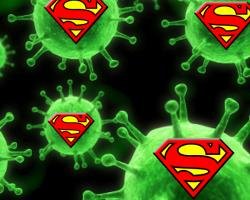
A*STAR develops LoFreq technique to monitor evolution of drug resistant super bugs in real time
Singapore: Scientists at A*STAR's Genome Institute of Singapore (GIS) have developed a technique to precisely monitor and study the evolution of micro-organisms such as viruses and bacteria. This allows scientists to investigate if new drugs designed to kill them are working, and catch the development of resistance early on. Until now, scientists have had to wait for the selection process to reach maturity before they can observe mutations and assess their impact.
In this new work, led by GIS Principal Investigators Dr Niranjan Nagarajan and Dr Martin Hibberd, the sensitivity of detecting mutations has been significantly increased, thus making it possible to "catch evolution in real time". Being able to do this means that scientists can now observe the process of mutation as it happens, and catch how the organism or cancer cell develops resistance to drugs used.
The novel method, known as LoFreq, was achieved by combining deep sequencing of DNA with computational analysis to detect mutations at extremely LOw FREQuency, in as few as one in 1000 cells. This approach is currently being used at the GIS to study the dengue virus, characterizing subtle shifts in the viral genome in response to new antiviral drugs.
Dr Niranjan said, "LoFreq has really allowed us to look at viral genome evolution in fine detail and we hope to use it construct better models for transmission of the dengue virus. We can also now identify key functional regions in viral genomes by highlighting spots that never mutate or mutate rapidly. In ongoing work, we are developing extensions to LoFreq that can better characterize mutations in cancer."
Executive director of GIS, Professor Ng Huck Hui said, "This innovation in the computational space highlights GIS's effort in developing unique capabilities in analyzing increasingly complex next-generation sequencing datasets. We expect that LoFreq will have wide utility in the analysis of viral, bacterial and cancer genome data."




